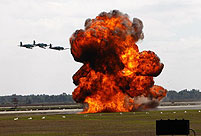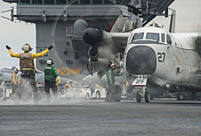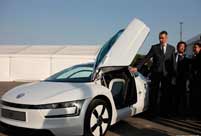It's been reported that Turkey recently announced an extension to the selection process for a medium- and long-range missile defense system until January 31, 2014, signaling a change in its previously announced decision to choose the offer from China.
It is believed to be the result of pressure from the US, the EU and Japan, which are seeking to foil the deal worth more than $3 billion. Nevertheless, this is a big success for China's missile industry, regardless of Turkey's final decision.
It's a historic breakthrough that China's HQ-9 missile defense system stood out in the first round of bidding. For the US and EU, the decision to pick China was an act of "betrayal" by Turkey, a NATO member. The Chinese offer beat the Patriot missile defense system of the US and the Aster 30 system by the EU, due to its high capacity, low price and good service.
This scenario is a manifestation of the progress the "Made in China" brand has made, entering the top echelon of the market, which was beyond the expectations of many Chinese.
The US and the EU are still influential enough to force a sovereign country to reverse its decision. However, this time, it only reflects their failure: They cannot succeed using fair play and have to resort to low methods to control the game and force a restart.
Purchasing military hardware is heavily affected by politics. The US and EU have long controlled the international arms market and maintained an arms embargo over China, but now, when China is capable of joining the competition, they have started to interfere with China's arms exports. In the eyes of the US and EU, China has always been a dissident and Turkey is not trustworthy either.
It's impractical to expect China's rise to take place smoothly. In fact, the higher the position China gains, the fiercer the resistance and obstructions by the West it will encounter. The FD-2000, Huawei, ZTE, Sanyi, among others, have to bear more pressure because of their China label. Interference by the West is a confirmation of the high quality of these products, and the West is probably as put out as we are by this interference. Frictions will continue between the two sides until they find the right position.
The early years after the Cold War were the golden days of the West. From a high moral ground and with money and time, they gave charity to developing countries and lectured them on human rights and democracy. However, the rise of emerging countries, especially China, has exposed their hypocrisy and selfishness.
The successful bid put the West in a panic, which serves as the source of our confidence. They may get one over on China's business once or twice, but they won't always succeed. China is poised to gain new prospects through its efforts.
 Annual airshow kicks off in Houston
Annual airshow kicks off in Houston U.S. Navy Carrier Strike Group stages military exercises
U.S. Navy Carrier Strike Group stages military exercises Volkswagen showcases new energy vehicles in Beijing
Volkswagen showcases new energy vehicles in Beijing  How should we get married nowadays?
How should we get married nowadays?  Commentary:
Commentary: Jakie Chan sees Rubber Duck off in Beijing
Jakie Chan sees Rubber Duck off in Beijing Lingerie show dazzles Wuhan Motor Show 2013
Lingerie show dazzles Wuhan Motor Show 2013  Running in fun customs at Beijing Int'l Marathon
Running in fun customs at Beijing Int'l Marathon  Weekly Sports Photos
Weekly Sports Photos Unveil PLA air force base
Unveil PLA air force base  Say goodbye to tube-like apartment building
Say goodbye to tube-like apartment building Oriental education or western education?
Oriental education or western education? China in autumn: Kingdom of red and golden
China in autumn: Kingdom of red and golden National Geographic Traveler Photo Contest
National Geographic Traveler Photo Contest Chinese screen goddesses from Beijing Film Academy
Chinese screen goddesses from Beijing Film Academy Day|Week|Month